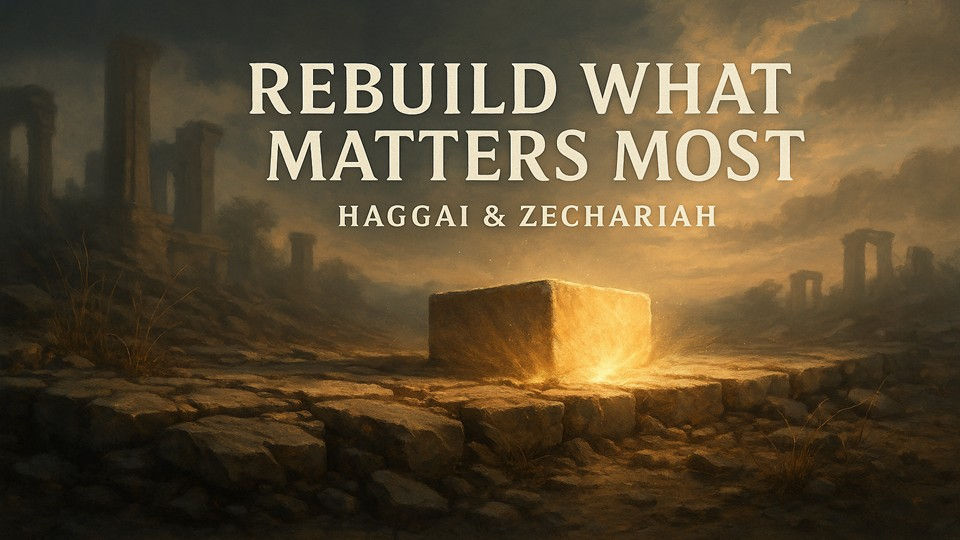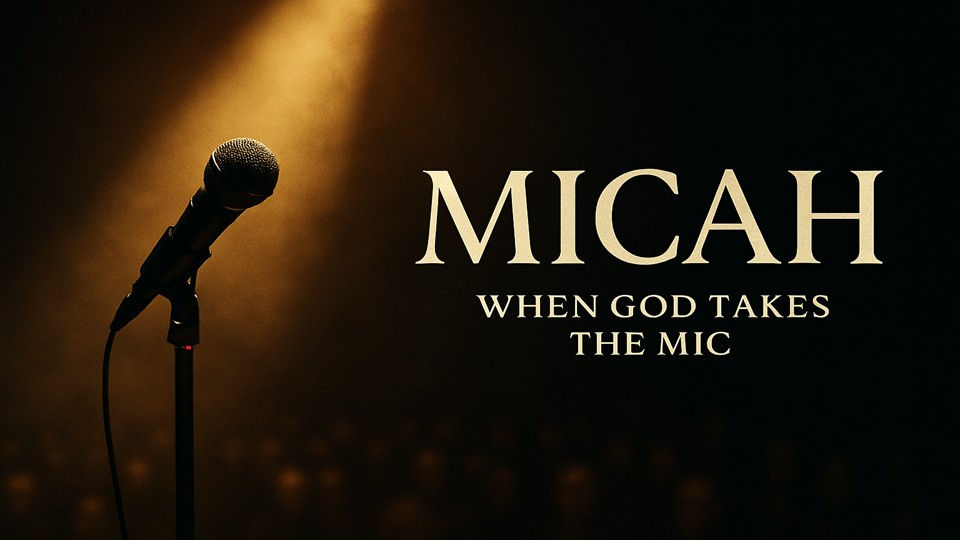Hidden in the Storm: Zephaniah
- Office FaithCC

- Sep 4, 2025
- 4 min read
Have you ever had a day on the calendar that you just couldn’t avoid? Maybe it was surgery, or a job interview, or that dreaded hard conversation. You circled it in red. You thought about it for weeks. And the closer it came, the heavier it felt.
Some days are like that. They bend the rest of life toward them.
That’s exactly how the Bible talks about the Day of the Lord.
The prophets use that phrase again and again—not to describe a regular day of worship or just a general sense of judgment, but a specific day when God Himself steps in. The Day of the Lord is the collision point between God’s holiness and human sin. It’s the moment when God interrupts history, confronts evil, and puts the world on notice.
And no prophet drives this home quite like Zephaniah.
A Royal Prophet with a Stark Message
Zephaniah was no outsider shouting from the desert. He was royal blood—likely a great-great-grandson of King Hezekiah. That means he grew up in the palace, knew how power worked, and saw firsthand the privilege and corruption that shaped Jerusalem.
From that vantage point, he brought a message like a thunderclap:
“I will sweep away everything from the face of the earth,” declares the Lord.—Zephaniah 1:2 (NIV)
That’s the opening line of his prophecy. No easing in. No soft preface. Just a prophetic earthquake.
The reason? Zephaniah’s theme is the Day of the Lord—and he uses that phrase more than any other prophet.
The Day You Can’t Avoid
The first chapter of Zephaniah piles up images of judgment like storm clouds on the horizon. He warns of distress and anguish, trouble and ruin, darkness and gloom. He paints the scene of people running, panicked, as if the lights of creation itself were going out.
What’s at stake isn’t just some vague “judgment.” It’s personal and searching.
Zephaniah says God will “search Jerusalem with lamps” and punish those who are complacent, who think, “The Lord will do nothing, either good or bad” (1:12).
That’s chilling. It’s not rebellion that’s most dangerous. It’s apathy. People who still say they believe in God but have decided He doesn’t really matter.
The hardest unbelief isn’t shouting against God. It’s sleepwalking past Him.
And Zephaniah’s warning lands with haunting force:
“The great day of the Lord is near—near and coming quickly.”—Zephaniah 1:14
No One Escapes
In chapters 2 and 3, Zephaniah makes it clear: this judgment isn’t just for Judah’s neighbors, or pagan nations far away. It’s for everyone. Philistia to the west, Moab and Ammon to the east, Cush to the south, Assyria to the north.
It’s a full circle of judgment. A storm that leaves no direction safe.
Then he turns the spotlight inward. Jerusalem itself—God’s chosen city—has become rebellious, defiled, and oppressive. Its leaders devour the weak like wolves. Its prophets speak recklessly. Its priests twist the law. Its people refuse correction, shrugging off every warning.
Zephaniah’s point is devastating: no one escapes the Day of the Lord.
It’s easy to condemn the sins of others. But when the storm comes, it doesn’t stop at the border. It exposes everyone.

And it leaves us asking the same question the prophets ask: If the Day is so fierce, who can stand?
A Hidden Invitation
Right in the middle of this storm—tucked between visions of destruction—Zephaniah whispers a surprising invitation.
“Seek the Lord, all you humble of the land, you who do what He commands. Seek righteousness, seek humility; perhaps you will be sheltered on the day of the Lord’s anger.”—Zephaniah 2:3
Did you catch that?
Hidden among the words of wrath is an appeal to the humble. To those still willing to seek, still willing to bow, still willing to call on God.
It’s not a formula. It’s not a guarantee. It’s a “perhaps.”
Why? Because rescue is never something God owes. It’s always grace. Mercy is never a human right. It’s a divine gift.
Zephaniah’s very name means “Hidden by Yahweh.” And these verses are like his signature. Salvation is hidden here—not in human strength, not in city walls, not in palaces or armies, but in God Himself.
Hope is hidden in the storm.
The God Who Sings
Zephaniah doesn’t end with darkness. The final chapter soars with promises of restoration. He pictures a day when nations are purified, when scattered exiles are gathered, when shame is lifted, and when God Himself dwells in the midst of His people.
And then comes one of the most stunning verses in all of Scripture:
“The Lord your God is with you, the Mighty Warrior who saves. He will take great delight in you; in His love He will no longer rebuke you, but will rejoice over you with singing.”—Zephaniah 3:17
The same God who once roared in judgment now sings in joy. The storm that once threatened to sweep everything away has passed. And in its place is music—God’s own voice, delighting in His people.
The Gospel Connection
The prophets often leave us with tension. They hold up God’s holiness and our sin, His judgment and His mercy, and they don’t always show how the two meet.
But we know where they meet.

At the cross.
The cross of Jesus was the Day of the Lord breaking into history. A day of darkness, anguish, and wrath. A day when the storm of judgment finally fell.
And yet—it fell on Him.
He absorbed the storm so you could be sheltered.
He stood in your place so you could be hidden in Him.
He bore the fury so you could hear the Father’s song.
That’s why the “perhaps” of Zephaniah 2:3 has become the guarantee of Romans 8:1:
“Therefore, there is now no condemnation for those who are in Christ Jesus.”
Hidden in Him
Zephaniah’s message leaves us with two paths.
You can keep pretending God will do nothing. You can hide in your own distractions, possessions, or excuses. But the Day will still come. And the storm will still rage.

Or—you can seek Him. You can step out of apathy and pride and come into the shelter only He provides.
Because the same God who sweeps away all that is corrupt is the God who restores, gathers, delights, and sings.
So the invitation is clear: Come out of the storm. Come into the shelter of the Lord.





Comments